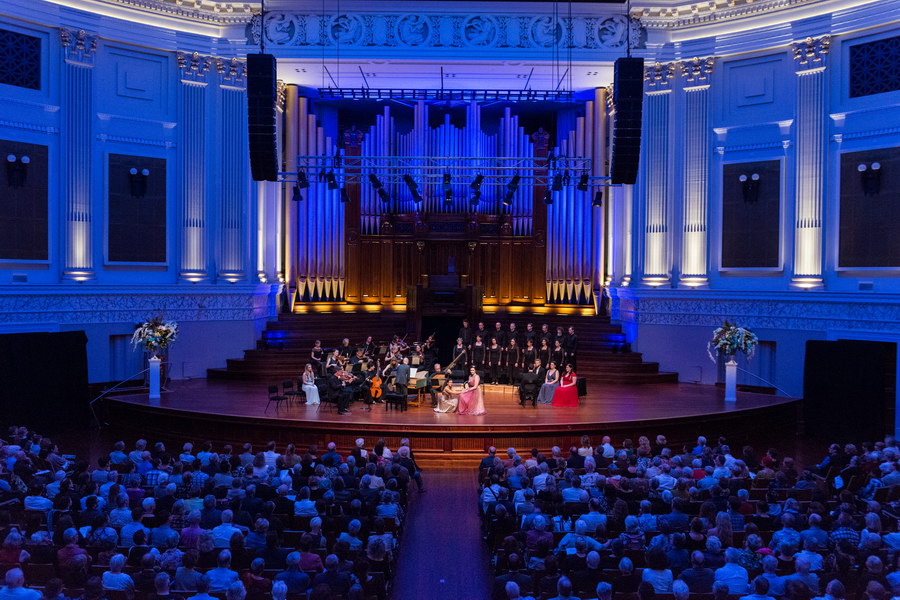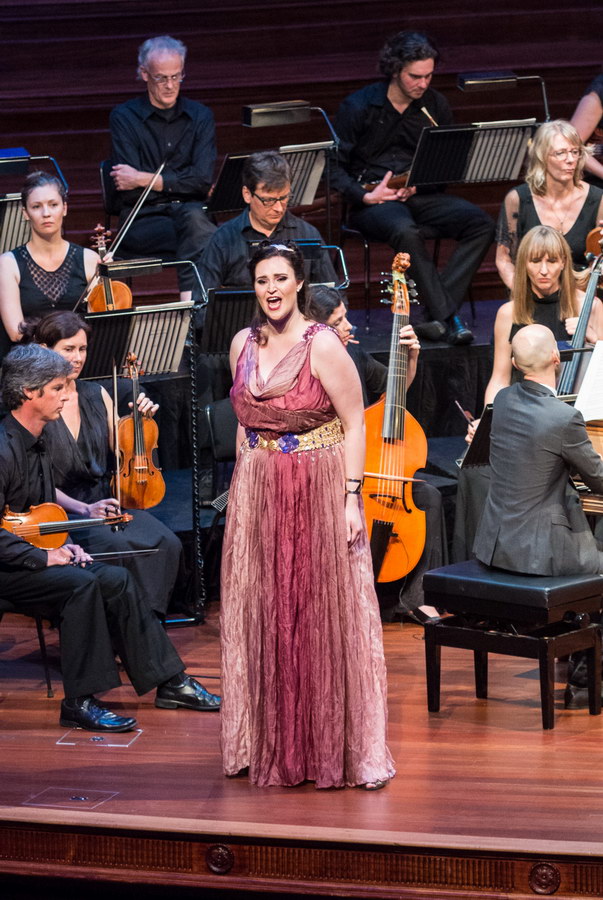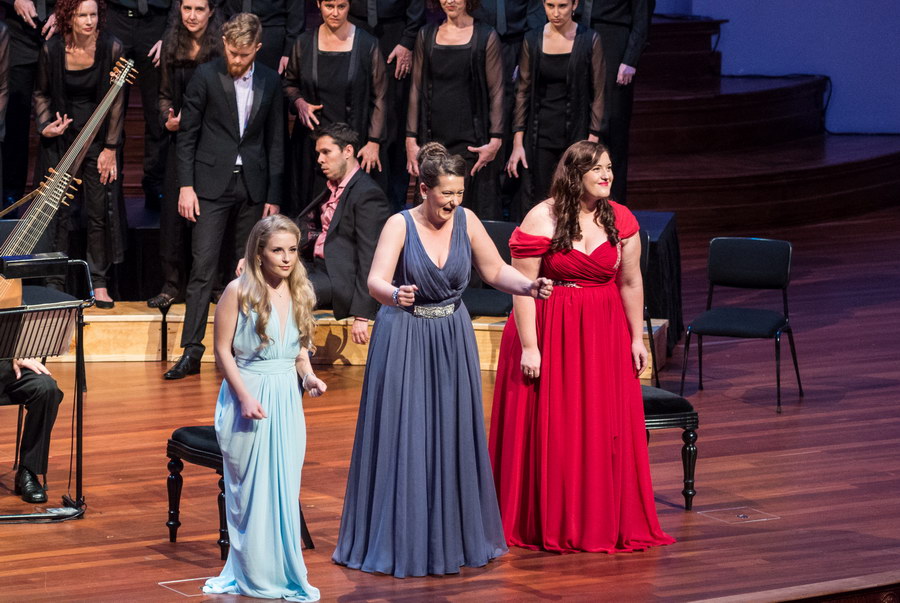Dido laments while witches steal the show in Purcell’s one-act hit English opera.
Brisbane City Hall
April 13, 2015
Brisbane Baroque has been doing something interesting. You lure people in with big names – in this case the divine Orchestra of the Antipodes, and the heavenly Sara Macliver and then you team them up with young up-and-coming stars. That’s what’s happened here, with a relative newcomer as Purcell’s Dido (Elizabeth Lewis).
 Brisbane City Hall (photo: Darren Thomas)
Brisbane City Hall (photo: Darren Thomas)
Of course, Purcell’s most memorable characters are the witches. Led by the deliciously nasty Louise Dorsman, they don’t just steal the show, they hot-wire it, drive it away into a wall and then cackle about the whole thing in the pub afterwards. More about them later.
The plot, as baroque operas go, is pretty straightforward, and very short. To put it slightly tongue in cheek: outright moron Aeneas, a Trojan head-kicker who supposedly later founds Rome, is effortlessly scammed by some witches. It’s the easiest grift ever; a witch just tells him she is a god, issues some orders that will require him to leave Dido’s side and sits back to watch the tragedy. By contrast Dido, Queen of Carthage, is a bit of a mope. Belinda, her offsider, starts the show telling the young woman – who is, just to repeat, full-on royalty – to cheer up. Belinda eventually achieves this the way you cheer up any inexplicably depressed teenager: offering her a hunky member of the opposite sex. A good plan in the short term, but it all falls apart – just as the witches intended. Mwahahahahaha.
Basically there are two ways of ‘staging’ Dido; you can take it ploddingly seriously, or you can play up the witches. I’m of the latter camp, and so was this production. In terms of staging, it was mostly stand-and-deliver with semi-theatrical costumes but with no set as such. This is perfectly fine, so long as you’ve got the vocal and dramatic firepower to make up the difference in grandeur. So how did Elizabeth Lewis’s Dido hold up? Pretty darn well, I think. She was clearly picked for her voice, and she delivers. If there’s a criticism I could make, it’s that she was a bit one-note, but it was an excellent note; it was a note that carried right to the back of the hall and had some serious power at the top, and some darn fine misery when she needed it.
 Elizabeth Lewis (photo: Darren Thomas)
Elizabeth Lewis (photo: Darren Thomas)
Lewis’s top notes dance around like children on a play set, no breathlessness at all even after lengthy runs. She tackled her uber-famous lament (When I am laid in Earth) like she was born for it (which is a depressing thought). But Dido isn’t miserable the whole time. Sometimes she’s angry. Her last scene with Aeneas could have used a bit more fury, to pick an example. That said, Lewis is clearly one to watch. It’s quite early in her career, and she’s certainly showing a lot of promise, particularly vocally. There have been a number of stand-out local/national women on display this Festival, and Lewis is one of them.
The rest of the cast was pretty good too. David Greco was a workmanlike Aeneas (his low notes were particularly fruity). Sara Macliver as Belinda was as great as we’ve come to expect. Second and third witches Alexandra Oomens and Bronwyn Douglass were a bit too vocally pretty, I thought. Nobody would say their performance was sub-par, but they could have got a bit more into the spirit of things, perhaps. Fortunately, the chorus (Canticum Choir) followed Louise Dorsman’s lead enthusiastically. They were wonderfully over the top, pure evil. I hope Dorsman will take this the right way: she made a very convincing witch in the right make-up.
 Alexandra Oomens, Louise Dorsman and Bronywn Douglas (photo: Darren Thomas)
Alexandra Oomens, Louise Dorsman and Bronywn Douglas (photo: Darren Thomas)
On the downside, the show was let down a bit by some naff lighting effects we might have been spared. Someone thought it was a good idea to illustrate a magic storm by turning the house lights on and off. It wasn’t. City Hall itself was a bit of a disappointment as well. It’s certainly a dramatically improved acoustic since refurbishment, but still bigger and more live than is comfortable for this sized show. Particularly without sur-titles; I picked very few words out of Purcell’s score, and it’s not for lack of trying on the part of the cast.
Finally a word about the band, the Orchestra of the Antipodes. They’re a well-oiled machine, and a responsive one; Erin Helyard, conducting from harpsichord, barely needs to give more than a wink to make musical continents shift. Their sound was warm, their playing only showy when it should be. This is an orchestra that clearly knows what it’s doing.











Comments
Log in to join the conversation.